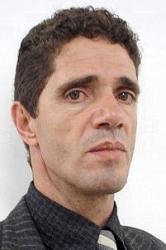
1824 - 1901 Author of "And now the wants are told that brought" in The Hymnal of the Protestant Episcopal Church in the United States of America 1940 Bright, William, D.D., born at Doncaster, Dec. 14, 1824, and educated at University College, Oxford, where he graduated B.A. (first class in Lit. Hum.) in 1846, M.A. in 1849. In 1847 he was Johnson's Theological Scholar: and in 1848 he also obtained the Ellerton Theological Essay prize. He was elected Fellow in 1847, and subsequently became Tutor of his College. Taking Holy Orders in 1848, he was for some time Tutor at Trinity College, Glenalmond; but in 1859 he returned to Oxford, and in 1868 became Regius Professor of Ecclesiastical History and Canon of Christ Church. His publications include:—
(1) Ancient Collects, selected from various Rituals, 1857, 2nd ed., 1862; (2) History of the Church from the Edict of Milan to the Council of Chalcedon, 1860; (3) Sermons of St. Leo the Great on the Incarnation, translated with notes, 1862; (4) Faith and Life, 1864-66; (5) Chapters of Early English Church History, 1877; (6) Private Prayers for a Week; (7) Family Prayers for a Week; (8) Notes on the Canons of the First tour Councils. He has also edited (9) Eusebius' Ecclesiastical History, 1872; (10) St. Athanasius's Oration against the Arians, &c, 1873; (11) Socrates' Ecclesiastical Hist.; (12) with the Rev. P. G. Medd, Latin Version of the Prayer Book, 1865-69. His poetical works are, (13) Athanasius and other Poems, by a Fellow of a College, 1858; and (14) Hymns & Other Poems, 1866; revised and enlarged, 1874. The last two works contain original hymns and translations. To the hymn-books he is known through his original compositions, seven of which are given in the revised edition of Hymns Ancient & Modern and some are found elsewhere. In addition to “And now the wants are told," and "At Thy feet, O Christ, we lay" (q.v.), there are:—
1. And now, 0 Father, mindful of the love. Holy Communion. Published in Hymns Ancient & Modern1875. Part of a composition in his Hymns, &c.
2. Behold us, Lord, before Thee met. Confirmation. Printed in the Monthly Packet, Nov. 1867, and, in a revised form, in the Appendix to Hymns Ancient & Modern, 1868.
3. How oft, O Lord, Thy face hath shone. St. Thomas. Published in Hymns Ancient & Modern, 1875.
4. Once, only once, and once for all. Holy Communion. Written in 1865, and published in his Hymns, &c, 1866, in 6 stanzas of 4 lines. It was given in the Appendix to Hymns Ancient & Modern, 1868; the new edition, 1875, and several other collections.
5. We know Thee, Who Thou art. Prayer after Pardon. Written in 1865, and published in his Hymns , &c, 1866, in 5 stanzas of 4 lines. It was included in the Appendix to Hymns Ancient & Modern, 1868, &c.
Canon Bright's hymns merit greater attention than they have received at the hands of compilers. He died March 6, 1901.
-- John Julian, Dictionary of Hymnology (1907)
===================
Bright, William, p. 182, i. Other hymns in common use are:—
1. God the Father, God the Son. Litany of the Resurrection. Second stanza, "Risen Lord, victorious King." From Iona, &c, 1886.
2. Pie sat to watch o'er customs paid. St. Matthew. In the 1889 Supplemental Hymns to Hymns Ancient & Modern.
3. Holy Name of Jesus. Name of Jesus. From Iona, &c., 1886.
4. Now at the night's return we raise. Evening. Rugby School Hymn Book, 1876, and others.
5. Thou the Christ for ever one. Mission to the Jews. In the 1889 Supplemental Hymns to Hymns Ancient & Modern.
--John Julian, Dictionary of Hymnology, Appendix, Part II (1907)
William Bright


